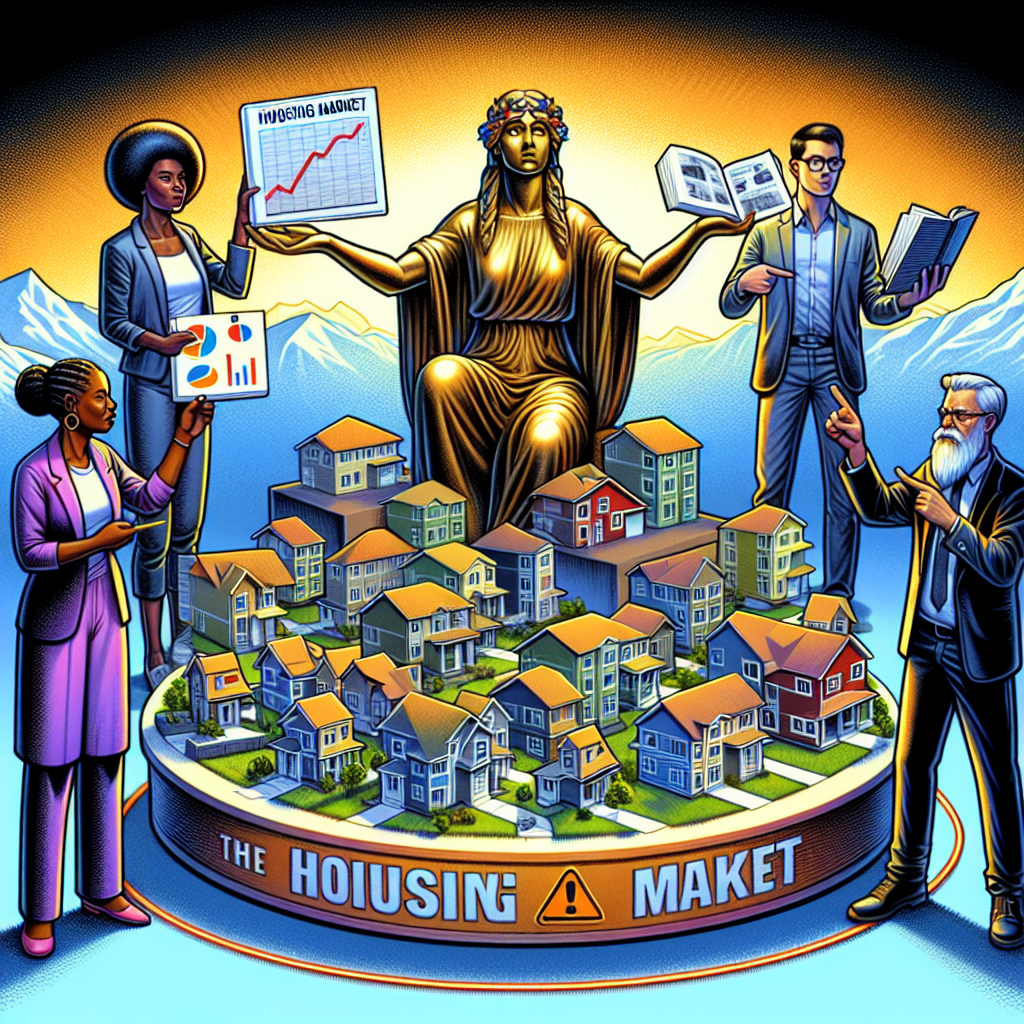Debunking 3 Persistent Housing Market Myths After the Election
The housing market is a complex and ever-evolving entity, often influenced by political, economic, and social factors. After an election, speculation and myths about the housing market tend to proliferate, causing confusion among potential buyers, sellers, and investors. In this article, we will debunk three persistent myths about the housing market that have emerged post-election, providing clarity and insight into the realities of the current market landscape.
Myth 1: Housing Prices Will Plummet After the Election
One of the most common myths is that housing prices will dramatically decrease following an election. This belief is often fueled by the uncertainty that accompanies political transitions. However, historical data suggests otherwise.
According to a study by the National Association of Realtors (NAR), housing prices have shown resilience in the face of political changes. For instance, after the 2016 U.S. presidential election, the housing market continued its upward trajectory, with home prices increasing by 5.8% in 2017. Similarly, after the 2020 election, the market remained robust, with prices rising by 9.2% in 2021.
- Historical data indicates that housing prices are more influenced by economic factors such as interest rates and supply-demand dynamics than by election outcomes.
- Post-election periods often see a stabilization rather than a decline in housing prices.
Therefore, while political changes can create short-term uncertainty, they do not necessarily lead to a significant drop in housing prices.
Myth 2: Interest Rates Will Skyrocket, Making Homes Unaffordable
Another prevalent myth is that interest rates will soar after an election, rendering homes unaffordable for many buyers. While it is true that interest rates can fluctuate due to economic policies set by the new administration, they are not solely determined by election outcomes.
The Federal Reserve plays a crucial role in setting interest rates, and its decisions are based on a variety of economic indicators, including inflation and employment rates. For example, in the aftermath of the 2020 election, the Federal Reserve maintained low interest rates to support economic recovery during the COVID-19 pandemic.
- Interest rates are influenced by broader economic conditions rather than just political changes.
- Even if rates rise, they are unlikely to reach levels that would make housing unaffordable for the majority of buyers.
Potential homebuyers should focus on their financial readiness and market conditions rather than election outcomes when considering a home purchase.
Myth 3: Political Changes Will Lead to a Housing Market Crash
The fear of a housing market crash following an election is another myth that often circulates. This concern is usually rooted in the belief that new policies will disrupt the market. However, a crash is typically the result of systemic issues rather than political changes.
For instance, the 2008 housing market crash was caused by a combination of factors, including subprime mortgage lending and financial deregulation, rather than political shifts. In contrast, the current housing market is characterized by strong demand, limited supply, and stricter lending standards, which provide a buffer against a sudden crash.
- Current market conditions, such as low inventory and high demand, support market stability.
- Regulatory measures and financial safeguards are in place to prevent a repeat of past crashes.
While political changes can influence market trends, they are unlikely to trigger a crash without underlying economic vulnerabilities.
Conclusion
In conclusion, while elections can introduce a degree of uncertainty into the housing market, they do not inherently lead to drastic changes such as plummeting prices, skyrocketing interest rates, or market crashes. Historical data and current market conditions suggest that the housing market is more resilient and influenced by a broader range of factors than commonly believed. By debunking these myths, potential buyers, sellers, and investors can make more informed decisions based on facts rather than speculation. As always, staying informed and consulting with real estate professionals can provide valuable guidance in navigating the post-election housing market landscape.



